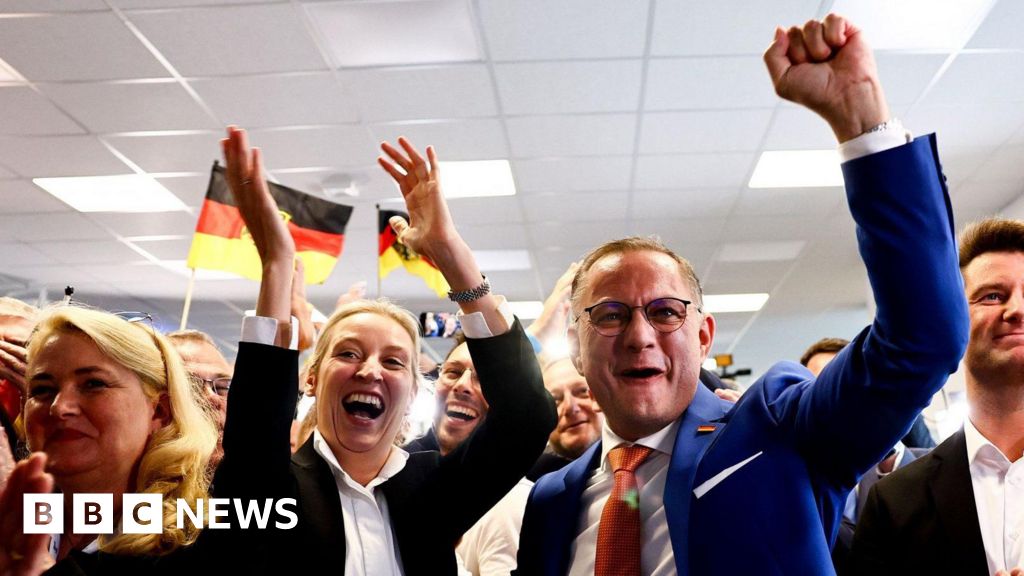“We demand a vote of confidence and new elections,” Alice Weidel, leader of Germany’s far-right Alternative for Germany (AfD), told journalists on Monday. “People have had enough.”
Germany’s far-right is jubilant after beating German Chancellor Olaf Scholz’s centre-left SPD to second place in the European Parliament elections with 16%.
The AfD’s results are better than expected. Their election campaign was hit by a string of scandals, with allegations of money laundering, cash from the Kremlin and spying for China.
In the end the AfD even had to campaign without their two lead candidates, Maximilian Krah and Petr Bystron, who were being investigating for links to Russia and China.
The final straw for Mr Krah came when he downplayed the crimes of the Nazis, musing that not all SS officers were criminals.
The AfD became too toxic even for France’s hard-right leader Marine Le Pen, who threw the AfD out of the right-wing European parliamentary group Identity and Democracy.
Ms Weidel clearly wants to make up with far-right allies in Europe: to clean up the party’s image, she has excluded Mr Krah from the AfD’s EU delegation.
The party’s leaders call the scandals a “media campaign”.
Judges who rule against the AfD in court, or intelligence services who investigate the party, are condemned as politically motivated.
This narrative of victimisation appears to have worked.
While the government’s high-minded election campaign talked about “defending democracy”, the AfD poured resources into TikTok videos, snappy slogans and simple-sounding solutions.
“We have real problems in this country which need to be resolved, instead of insulting us,” said AfD co-leader Tino Chrupalla. “It doesn’t work with voters.”
He may be right. In eastern Germany, where the AfD is particularly extreme but often leads in the polls, the far-right won the most votes.
And the party managed to up its share among young voters, who possibly enjoyed rebelling against mainstream German norms of acceptability.
Perhaps the AfD did well, not in spite of the scandals, but because of them.
The governing coalition is in turmoil, trying to figure out what went wrong.
On Monday, one SPD leader called the results a “painful humiliation”.
The conservatives are certainly satisfied with their lead result of 30%. But given how unpopular the government is, this is hardly a stunning result.
They came second to the AfD in eastern Germany, where key regional elections will be held in September.
And in a national parliament election, these numbers would make it hard to cobble together a stable coalition.
The result will give CDU leader Friedrich Merz a boost in his attempt to drag his party into a more conservative post-Merkel era, and it lays the groundwork for his bid to become Germany’s next chancellor next year.
But the only real winners in Germany this week are the populists.

